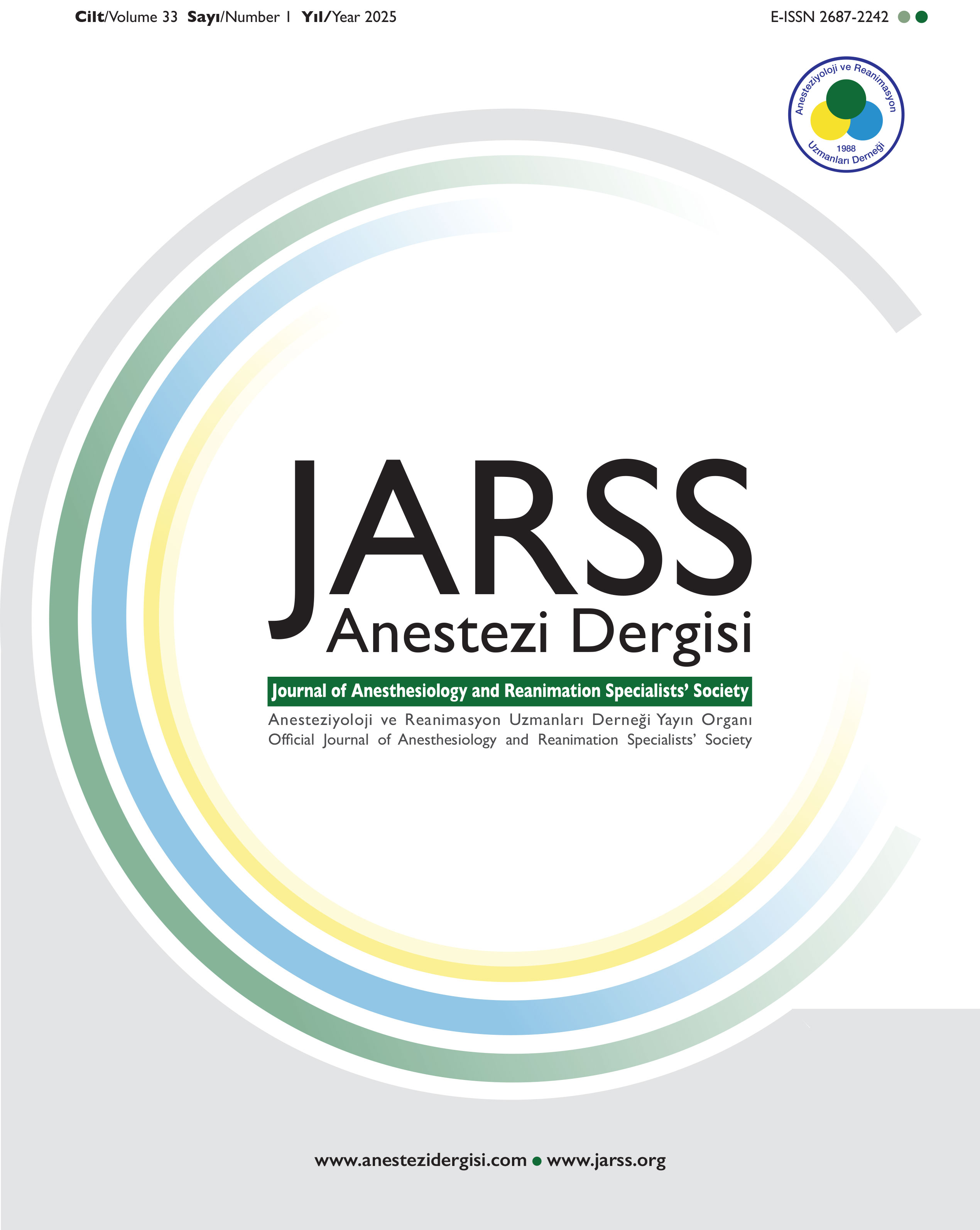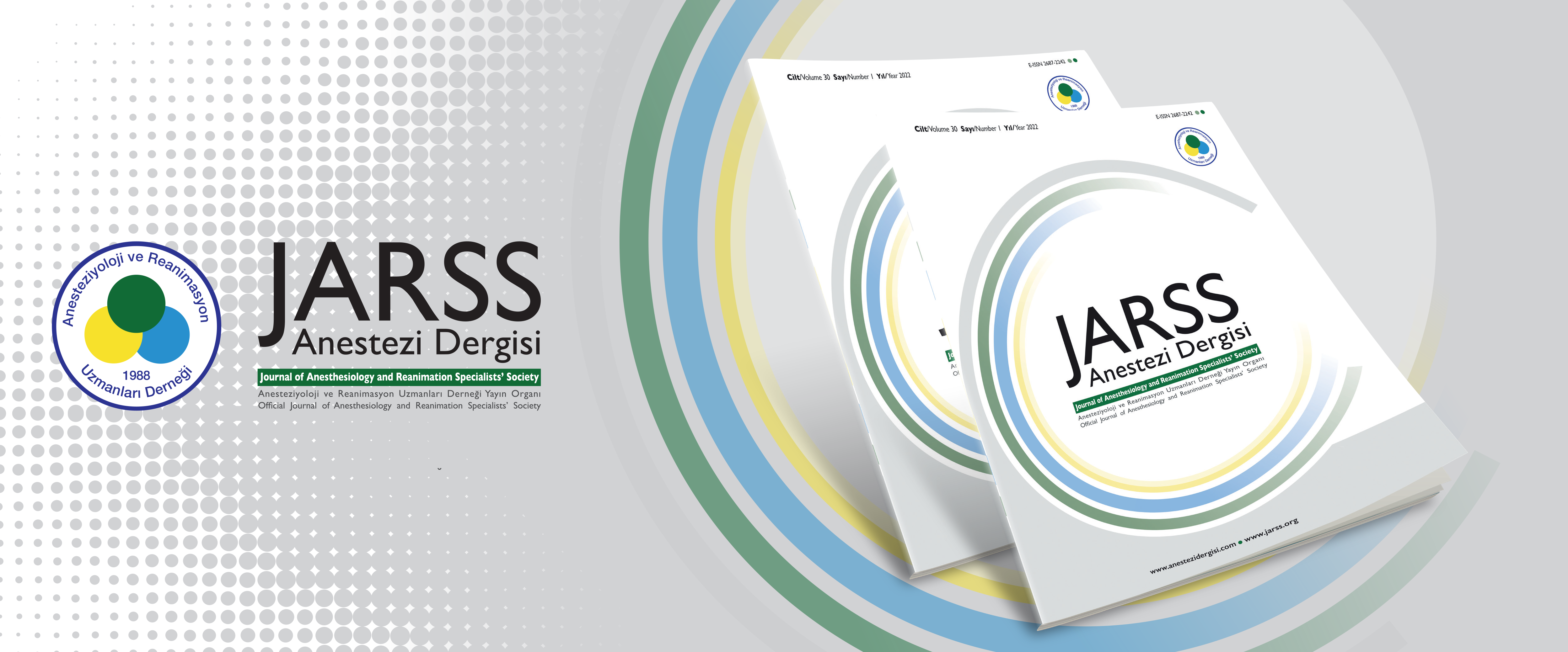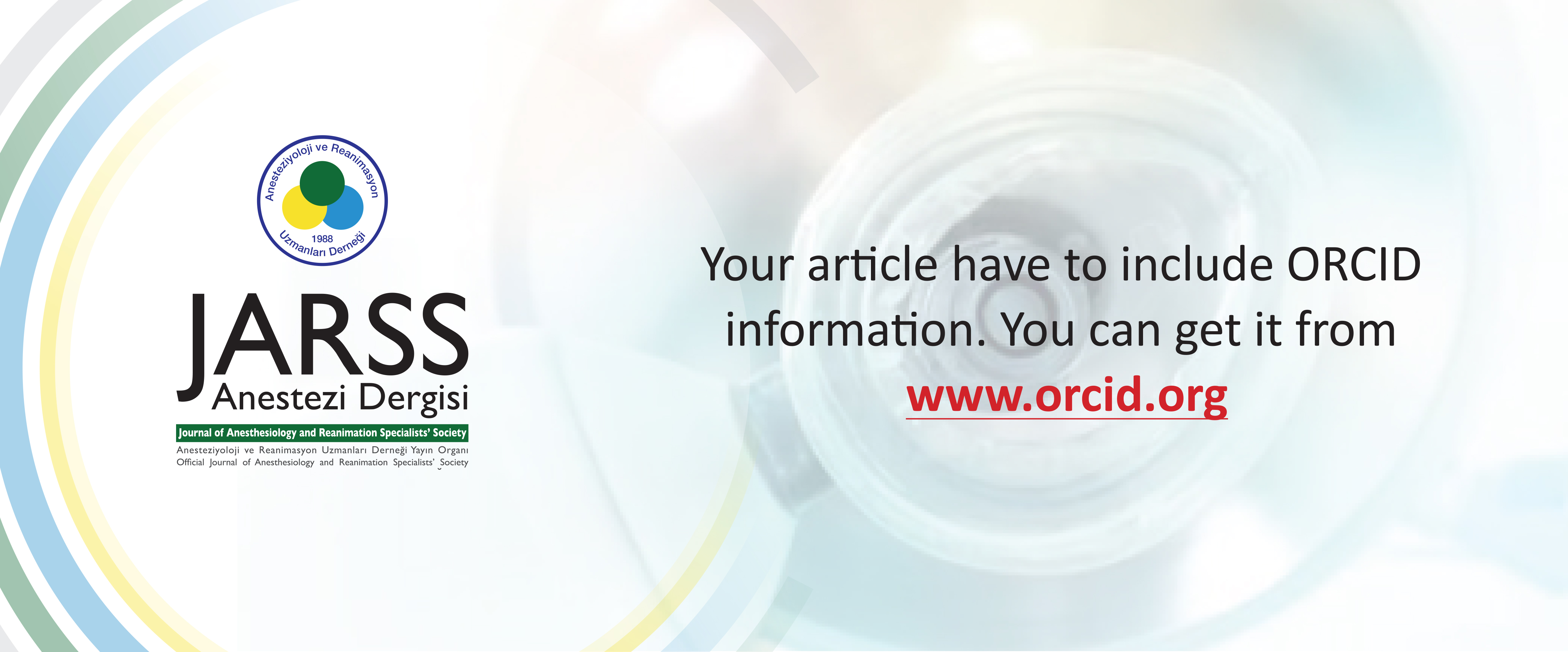Training and Knowledge Status of Doctors and Nurses on Oxygen Therapy in a Level Three Hospital-Survey Study
Keziban Bollucuoglu1, Gamze Kucukosman2, Sule Altuncu1, Hilal Ayoglu11Zonguldak Bülent Ecevit University Faculty of Medicine, Department of Anesthesiology and Reanimation, Zonguldak, Türkiye2University of Health Sciences Trabzon Faculty of Medicine, Department of Anesthesiology and Reanimation, Trabzon, Türkiye
Objective: Oxygen therapy (OT) is the administration of oxygen (O₂) at a concentration greater than that found in the atmosphere to prevent the symptoms of hypoxemia. The necessary knowledge, skills and attitudes of the staff while OT may affect the treatment outcomes. In our study, we aimed to determine the training and knowledge status of doctors and nurses working in our university hospital on OT.
Methods: The cross-sectional study was completed with 231 participants after ethics committee approval. Data were obtained by hand-completion of questionnaires consisting of 23 questions to volunteer. According to the correct answers given to the questions investigating the level of knowledge, scores >80% were classified as good knowledge level and <60% as poor knowledge level. p<0.05 was considered significant.
Results: The number of employees reached by the survey was 422 and 85% of nurses and 62% of doctors stated that they had knowledge of OT application. Twenty seven percent of nurses and 42% of doctors were using guidelines for OT. Eighty six percent of doctors and 90% of nurses felt that training for OT was necessary and the most common sources of information were school education. The rate of good knowledge was 9.7% among nurses and 14.3% among doctors (p=0.418). Regarding the expected clinical outcomes of OT, 71% of physicians and 49% of nurses had a good level of knowledge (p<0.001). Sixty four percent of physicians and 86% of nurses (p<0.001) had a poor level of knowledge about low-flow OT and 49% of physicians and 69% of nurses had a poor level of knowledge (p=0.004) about indications for short-term OT. Most of the participants (87.7%) had poor knowledge about O₂ toxicity.
Conclusion: It was concluded that the majority of healthcare professionals have insufficient knowledge in OT and comprehensive training programs are needed at regular intervals.
Üçüncü Basamak Bir Hastanede Doktor ve Hemşirelerin Oksijen Tedavisi Konusundaki Eğitim ve Bilgi Durumu-Anket Çalışması
Keziban Bollucuoglu1, Gamze Kucukosman2, Sule Altuncu1, Hilal Ayoglu11Zonguldak Bülent Ecevit Üniversitesi Tıp Fakültesi, Anesteziyoloji ve Reanimasyon Ana Bilim Dalı, Zonguldak, Türkiye2Sağlık Bilimleri Üniversitesi Trabzon Tıp Fakültesi, Anesteziyoloji ve Reanimasyon Ana Bilim Dalı, Trabzon, Türkiye
Amaç: Oksijen tedavisi (OT), hipokseminin belirtilerini önlemek amacıyla atmosferde bulunan konsantrasyonundan daha fazla yoğunlukta oksijen uygulanmasıdır. Terapötik O₂ uygulanırken çalışanların gerekli bilgi, beceri ve tutumları tedavi sonuçlarını etkileyebilmektedir. Çalışmamızda üniversite hastanemizde çalışan doktor ve hemşirelerin OT konusundaki eğitim ve bilgi durumlarını belirlemeyi amaçladık.
Yöntem: Kesitsel çalışma, etik kurul onayı sonrası 231 katılımcıyla tamamlandı. Veriler, gönüllülere 23 sorudan oluşan anket formlarının elden doldurulması yoluyla elde edildi. Bilgi düzeylerini araştıran sorulara verilen doğru yanıtlara göre puan >%80 ise iyi, <%60 ise zayıf bilgi düzeyi olarak sınıflandırıldı. p<0,05 anlamlı kabul edildi.
Bulgular: Anketin ulaştığı çalışan sayısı 422 olup hemşirelerin %85’i, doktorların %62’si OT uygulama bilgisi olduğunu belirtti. Hemşirelerin %27’si, doktorların %42’si OT için kılavuz kullanıyordu. Doktorların %86’sı ve hemşirelerin %90’ı OT için eğitiminin gerekli olduğunu düşünüyordu ve en yaygın bilgi kaynakları okul eğitimleriydi. Hemşirelerde iyi bilgi düzeyi oranı %9,7 iken, doktorlarda %14,3 idi (p=0,418). Oksijen tedavisinin beklenen klinik sonuçları konusunda ise doktorların %71’i, hemşirelerin %49’u iyi bilgi düzeyine sahiptiler (p<0,001). Düşük akımlı OT uygulama yolları konusunda doktorların %64’ü ve hemşirelerin %86’sı (p<0,001), kısa süreli OT endikasyonları konusunda da doktorların %49’u ve hemşirelerin %69’u zayıf bilgi düzeyine (p=0,004) sahiptiler. Oksijen toksisitesi konusunda ise katılımcıların çoğu (%87,7) zayıf bilgi düzeyine sahipti.
Sonuç: Sağlık çalışanlarının önemli bir kısmının OT uygulaması konusunda yeterli bilgiye sahip olmadığı ve düzenli aralıklarla kapsamlı eğitim programlarına ihtiyaç olduğu sonucuna varıldı.
Manuscript Language: English
(338 downloaded)

















